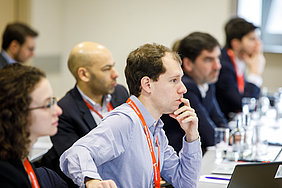
The transport sector transition is picking up speed: since the first bans on diesel in inner cities became a reality in 2018, there has been a further impetus for transforming the transport sector, in addition to the climate change aspect. To achieve emission limit values, conventional forms of transport and drive systems are being revised, and new mobility services implemented. Electrical transport as a low-emission form of transport has a central role to play. Where transitions in the energy and transport sectors meet one another, potential for new business models and solutions to existing challenges are created. The new mobility infrastructures not only have to be available in sufficient numbers, but also have to be decentralized, connected, controllable and in the right location. Companies, network operators, local authorities and other players on the ground are challenged to develop suitable solutions jointly. New housing developments in particular offer an opportunity to develop innovative approaches to transport and the supply of energy, and to implement these in planning policy.
On the customer side, the “jungle” of billing models for charging processes stands in contrast to the wish for clarity and simplicity. So user-friendly and simultaneously economically viable products are required to pick up the various target groups, ensuring that new mobility services can be successful across the country. Companies who re-equip their fleets face the challenge of planning their charging infrastructure, carrying out load and charging management and avoiding the pitfalls of simultaneously supplying their own needs and limiting quantities of electricity as required.
The workshop on 06.02.2019 combines a thorough overview of the current legal framework with specific options for operational implementation. It is aimed at management and staff in companies who implement innovative forms of transport in practice. The target groups are energy providers, providers of transport and property companies, as well as local authorities and companies who are equipping their sites with electric vehicles and a charging infrastructure.
Get an overview of the topics in our congress program.